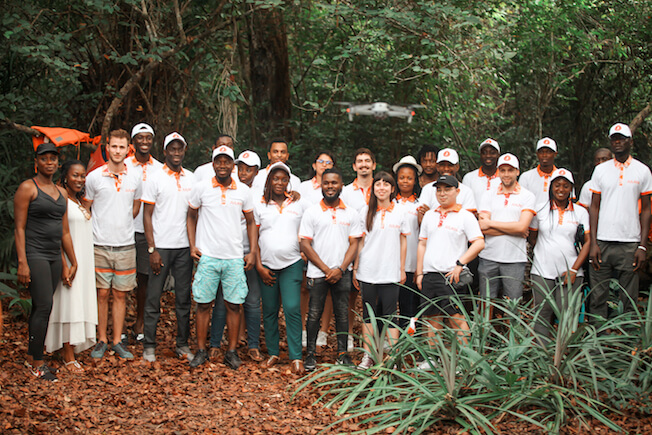Amid the effervescence of the African start-up ecosystem, one question persists: what are the key ingredients that propel a fintech to the pinnacle of success? Is it its vocation, its innovative business model or its transformative impact on users? At Fanaka&Co, after closely exploring a number of successful start-ups on the continent, we have come to one conclusion: success is often the result of a combination of all these elements. We take you on a journey to discover one of these African nuggets, a company that meets all these criteria: Julaya. Julaya is a story of daring, determination and vision that deserves to be told, because it is a testimony to how fintech can revolutionise the African economy through technology. We invite you to delve into the world of this start-up, one of the rising stars of mobile money in Africa.
Julaya, what exactly is this?
Julaya means commerce in Bambara, a language spoken in several African countries including Côte d'Ivoire. In fact, that's where the startup was born in 2018, founded by Charles Talbot and Mathias Leopoldie. At the time, mobile money transactions in Africa amounted to more than 400 million dollars a day. The sector was doing very well and is still going strong today, thanks in particular to the many companies involved. According to McKinsey, the mobile money sector in Africa will have increased its revenues eightfold by 2025. Julaya, a young Franco-Ivorian company, was created in an environment more than conducive to its aspirations.
The start-up has developed a digital platform through which businesses can carry out financial transactions to mobile money and mobile banking accounts. The founders want to provide merchants and SMEs with simple, accessible ways of transferring money from one 'Momo' (mobile money) operator to another. The platform enables users to simplify their accounting and improve their operational efficiency, while digitising payments to employees, suppliers and service providers.
Based on a plug-and-play system, the Julaya platform's operating system requires no technical knowledge and is therefore accessible to everyone, even businesses with little digital capability. The platform's services are very B2B-oriented, and to take advantage of them, you first need to create an account and top up your wallet at one of the startup's partner banks. Then, in record time, users can transfer the amounts they want to different mobile money accounts. These options are available because Julaya has partnered with mobile operators, fintechs and banking organisations in Benin, Senegal, Côte d'Ivoire and France. It is in these different countries that the company has deployed its activities.

Julaya also boasts that more than 300 finance directors and managing directors use its platform. It is said to have transferred over 100,000 payments and salaries. With a 24-hour support service and rates ranging from 0 to 2%, it has rightly won over SMEs, large companies, public institutions, famous brands and, above all, investors.
Financing and partnerships, real catalysts for growth
A year after its pre-Series A funding of USD 2 million, Julaya has extended its pre-Series A funding round to USD 5 million in September 2022. Prior to these two major financings, the startup raised USD 250,000 in 2018 and USD 550,000 in 2019. These various fundraisings have enabled the young company to continue its penetration of the West African market. The latest round will be used to expand into Togo and Burkina Faso, recruit talent and accelerate product development.
In addition, on 9 February 2023, Julaya signed an agreement with Sirius Capital, an intermediation and management company (SGI) operating on the BRVM (Bourse régionale des valeurs mobilières) an innovative partnership. The partnership will enable people in Côte d'Ivoire to invest in the stock market using mobile money and their bank cards. In other words, users will be able to easily carry out transactions such as making purchases or receiving dividends on their SGI securities accounts. All this using their mobile money accounts.

In Africa, the mobile money sector is definitely the technological revolution of our time. The sector is attracting investors, and companies are vying with each other in terms of creativity and innovative solutions to bring real value to people. Thanks to players as committed as Julaya, the African economy is sure to take off thanks to fintechs.





